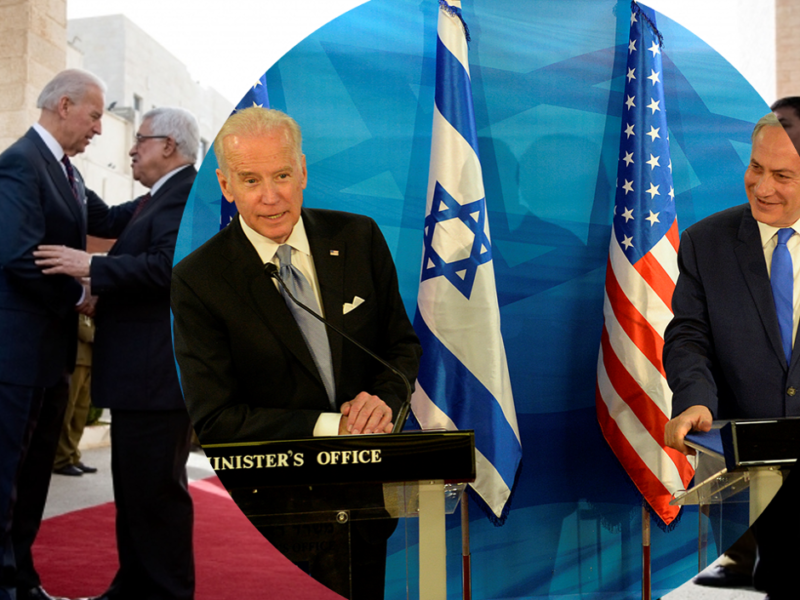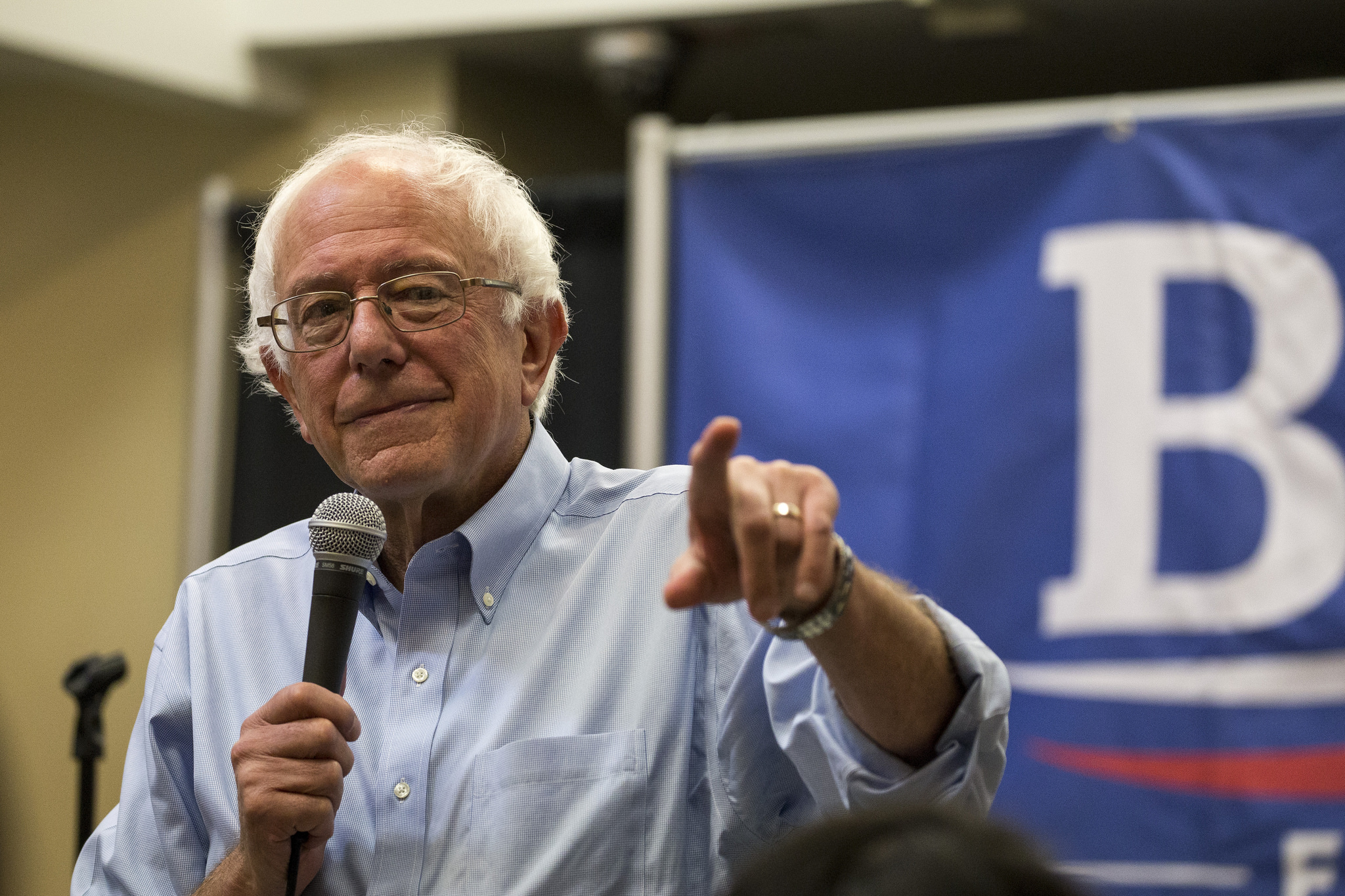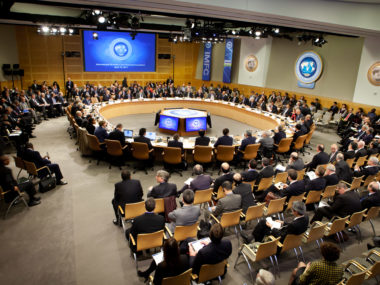By Peter Krause
In his first month in office, President Joe Biden made a number of foreign policy changes in the Middle East: the end of US support for the Saudi war in Yemen, removal of the Houthi rebel group from their short-lived stay on the Foreign Terrorist Organizations list, reopening negotiations with Iran on nuclear issues, ending the “Muslim travel ban” on many countries in the region, and raising the number of refugees the US accepts annually—many of whom will come from Middle Eastern states experiencing conflict. These early moves have a common theme that fits with Biden’s other foreign policy steps, such as rejoining the Paris Climate Agreement and re-engaging with NATO: Trump-era policies out, Obama-era policies (back) in. As Biden himself said in his first major foreign policy speech, “America is back. Diplomacy is back.”
At first glance, Biden’s foreign policy toward Israel and the Palestinians seems likely to follow a similar pattern. In contrast to Trump’s unilateral disengagement from the Palestinians and unabashed support of Prime Minister Netanyahu’s vision for Israel, Biden signaled that he would restore funding to Palestinian refugees via UNRWA, re-open the Palestinian diplomatic mission in Washington, and pursue a two-state solution that the White House believes “remains the only path forward.”
The problem is, unlike the other issues, Biden cannot return to the pre-Trump ante in the Israeli-Palestinian conflict. Too much has changed. Attempts to simply reboot the old approach to the two-state solution will fail even more quickly and spectacularly than the many, many, many prior attempts. A successful US approach to helping resolve—or at least assuage—the conflict requires a clear-eyed assessment of new realities, not simply a return to old policies.
First, current Israeli and Palestinian leaders lack the desire and/or will to deliver a two-state deal. Despite throwaway lines in speeches here or there to the contrary, Israeli Prime Minister Benjamin Netanyahu has generally opposed the emergence of a real Palestinian state. He is facing corruption charges and may lose the Israeli election this month, but most of his major rivals come from the right and similarly oppose Palestinian statehood. On the Palestinian side, Hamas still does not recognize Israel. President Mahmoud Abbas is the only prominent leader on either side who supports a robust two-state solution, but he lacks the legitimacy and popular support to deliver a deal. Palestinian elections this summer may shake things up a bit, but if the past two decades are any indication, the elections may not actually be held. If they are, the results may not be honored by the Palestinian leadership, the Israelis, and/or the Americans.
Second, the US has less leverage in this dispute than ever, particularly concerning the Israelis. Israel has always been the far stronger side in the conflict, but it previously lacked two things at the international level: recognition of its disputed territorial claims and recognition of its statehood and partnership with influential Arab states in the region. Under the Trump administration, the Israelis made significant gains in both areas, securing US recognition of Jerusalem as Israel’s capital and sovereignty over the Golan Heights, as well as recognition and growing partnership with the United Arab Emirates, Bahrain, Morocco, and Sudan. More powerful countries like Saudi Arabia may be close behind, as domestic concerns and the Iranian threat push Palestinian solidarity ever further down the list of regional priorities.
Although he would not have made all of the same moves, Biden is unlikely to reverse the Abraham Accords or the recognition of Jerusalem—despite signaling modest rhetorical differences on the Golan Heights. Most Israelis therefore believe they have less need than ever for a two-state solution, as many of the previously contingent international concessions have already been realized.
President Trump’s 2020 “Deal of the Century” represented a paradigm shift from collaborative negotiations to coerced victory. One can disagree with Trump’s solution—which overwhelmingly favored the Israelis—but it is difficult to deny that it was based on a largely accurate assessment of the reality on the ground. The expansion in the number of West Bank settlers, settlements, and their associated political power continues unabated. The central debate in Israel today is not when and how much of the West Bank to concede for a Palestinian state, but rather when and how much of the West Bank to annex as part of Israel. Whatever one’s opinion of who has justice on their side, the Israelis have so soundly won the conflict on the ground over the past century that only a massive effort could reverse the status quo.
President Biden has signaled that he wants to alter the one-state, “managed” status quo of a challenged but prosperous Israel, a divided and unequal West Bank, and an unstable and tragic Gaza. If so, reality dictates a robust campaign that goes beyond a basic “get the parties talking” approach. Real US and international political and economic pressure will have to be brought to bear in order to make a two-state outcome possible. That seems increasingly unlikely, however, as Biden is implicitly and explicitly deprioritizing the Middle East.
That doesn’t mean that something else could not change the trajectory of the conflict: mass mobilization by the Palestinians demanding equal rights and/or citizenship in an Israeli state could change the game, and ironically, be the impetus for a real two-state solution. But in terms of what Biden can control, it’s Trump-style coerced Israeli victory or robust coercive diplomacy towards two states. Toothless rhetoric in support of the latter will only yield the former. Trump’s plan punctured any remaining illusions about the realities of the Israeli-Palestinian conflict. If Biden wants to help move the conflict towards a different resolution, he needs to do far more than return to the prior approach.







